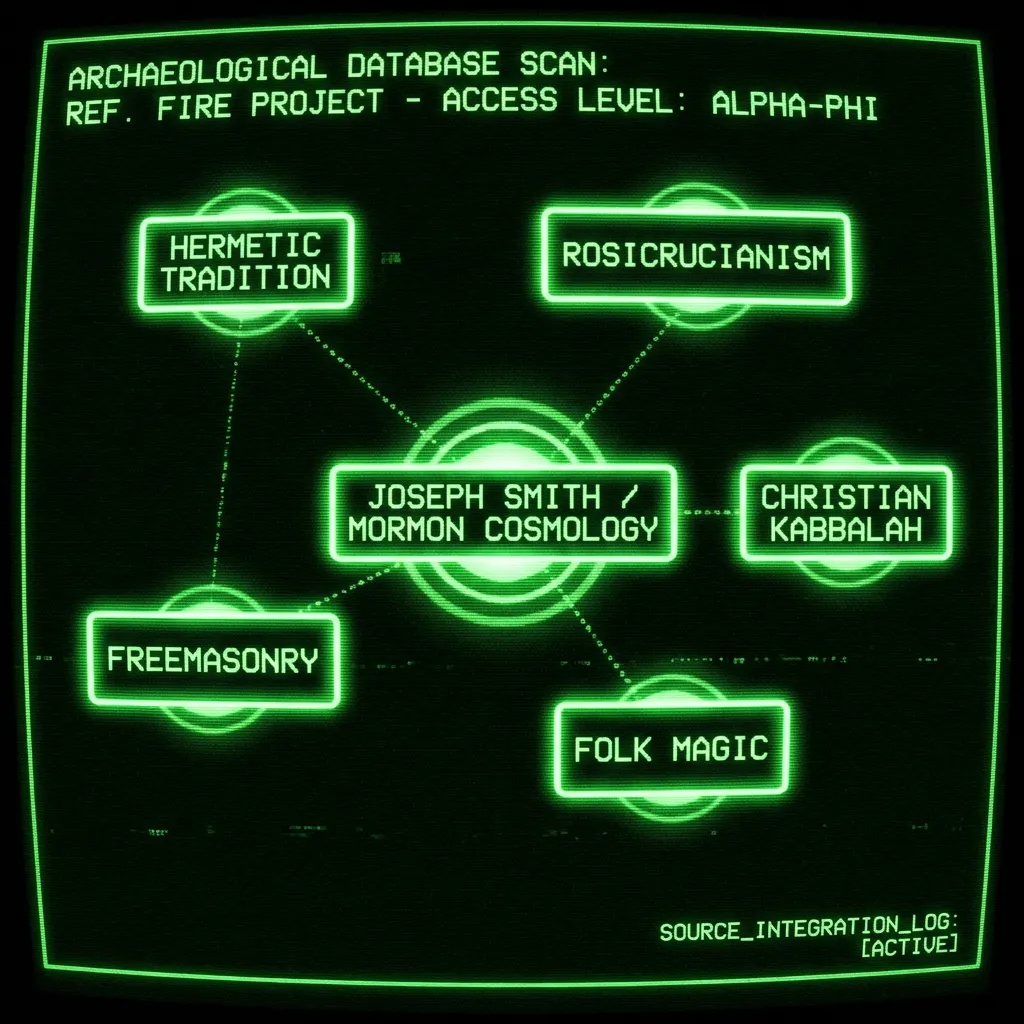TL;DR
- The Refiner’s Fire explores how early Mormon cosmology was shaped by hermetic–alchemical traditions.
- Authored by historian John L. Brooke, Arts & Sciences Distinguished Professor at OSU[^1].
- Published by Cambridge University Press in 1994; won the 1995 Bancroft Prize12.
- Praised by mainstream historians; sharply critiqued by LDS apologists34.
- Holds a Goodreads rating of ~3.9/5 from 100+ readers5.
- Brooke’s scholarship spans early American intellectual history, climate history, and democratic culture.
Book Details
Metadata#
| Detail | Information |
|---|---|
| Author | John L. Brooke (b. 1953), Arts & Sciences Distinguished Professor of History & Warner Woodring Chair at Ohio State University[^1] |
| Publication data | Cambridge University Press, 1994 (hardback); paperback re-issue 19961 |
| Core thesis | Brooke traces a “hermetic–alchemical” current—from Radical Reformation sects, Rosicrucianism, Freemasonry, folk magic, and Christian Kabbalah—into the Burned-over District, arguing that Joseph Smith fused these esoteric strands with Bible primitivism to create distinct Mormon cosmology. |
| Major awards | Bancroft Prize in American History (1995)—one of the discipline’s top honors—awarded for originality and breadth2 |
Reception#
| Community | Typical Response | Key Points & Examples |
|---|---|---|
| Mainstream historians / American studies | Largely positive; hailed as bold, interdisciplinary, and path-breaking | Cambridge promo calls it “important and daring.” Dialogue reviewer Owens: “seminal work… every scholar must now reckon with.”3 |
| LDS-aligned scholars & apologists (FARMS, BYU) | Often sharply critical; accuse Brooke of parallel-omania, factual slips, and ignoring ancient Christian sources | FARMS Review of Books ran a 70-page rebuttal (Hamblin, 1996) disputing Hermetic/Kabbalah links as “unsubstantiated.”4 |
| Independent Mormon studies & ex-Mormon readers | Mixed-to-welcoming; credit it with opening serious discussion of Smith’s magical milieu | Juvenile Instructor blog: suggests a more nuanced reception if published today.6 |
| General readership | Modest sales; Goodreads rating ~3.9/5 from 100+ readers | Enthusiasts find it dense but rewarding for its esoteric history.5 |
Common accolades
- “Brilliant synthesis of occult, social, and religious history” (academic panels after the Bancroft)
- Praised for unearthing forgotten Hermetic/Pietist enclaves (Ephrata Cloister, Rosicrucian-tinged Masonry)
Typical criticisms
- Overstates direct transmission: lacks a “smoking-gun” showing Smith read specific hermetic texts.
- Conflates Christian Platonism with occultism; factual missteps flagged by FARMS reviewers.
About John L. Brooke#
- Scholarship breadth: Early America (The Heart of the Commonwealth, Merle Curti Award), climate history (Climate Change and the Course of Global History), democratic culture (Columbia Rising).
- Methodological bent: Blends social, intellectual, and cultural history—comfortable crossing disciplinary lines (including an anthropology appointment at OSU).
- Current roles: Director (2011–22) of OSU’s Center for Historical Research; holds joint positions in History and Environmental Science departments.
FAQ#
Q 1. Who is John L. Brooke? A. An eminent historian born in 1953, Brooke is Distinguished Professor of History at Ohio State University and won the 1995 Bancroft Prize for The Refiner’s Fire for its groundbreaking analysis of Mormon cosmology[^1].
Q 2. What is the core argument of The Refiner’s Fire? A. That early Mormon cosmology emerged from a hermetic–alchemical tradition—via Radical Reformation sects, Rosicrucianism, Freemasonry, folk magic, and Christian Kabbalah—and was fused with biblical primitivism by Joseph Smith.
Footnotes#
Sources#
- John Brooke – School of History, Ohio State University. https://history.osu.edu/people/brooke
- The Refiner’s Fire: The Making of Mormon Cosmology, 1644–1844, Cambridge University Press, 1994. https://www.cambridge.org/core/books/refiners-fire/53936E821BC016151625D1F646728610
- Bancroft Prize winners, Columbia University Libraries. https://library.columbia.edu/libraries/butler/about/awards/bancroft.html
- Owens, Lance S. “Review of The Refiner’s Fire.” Dialogue: A Journal of Mormon Thought 29, no. 2 (1996). http://www.dialoguejournal.com/…
- Hamblin, William J. “Everything is Everything: Was Joseph Smith Influenced by Kabbalah?” FARMS Review 8/2 (1996). https://publications.mi.byu.edu/…
- Goodreads. “The Refiner’s Fire.” https://www.goodreads.com/book/show/1161615
- Juvenile Instructor blog post on The Refiner’s Fire. http://juvenileinstructor.org/…
The Refiner’s Fire, Cambridge University Press (1994). ↩︎ ↩︎
Bancroft Prize listing, Columbia University Libraries. ↩︎ ↩︎
Owens, Lance S. Review of The Refiner’s Fire in Dialogue: A Journal of Mormon Thought 29, no. 2 (1996): 125–28. ↩︎ ↩︎
Hamblin, William J. “Everything is Everything: Was Joseph Smith Influenced by Kabbalah?” FARMS Review 8/2 (1996): 251–325. ↩︎ ↩︎
Juvenile Instructor blog commentary on The Refiner’s Fire. ↩︎
